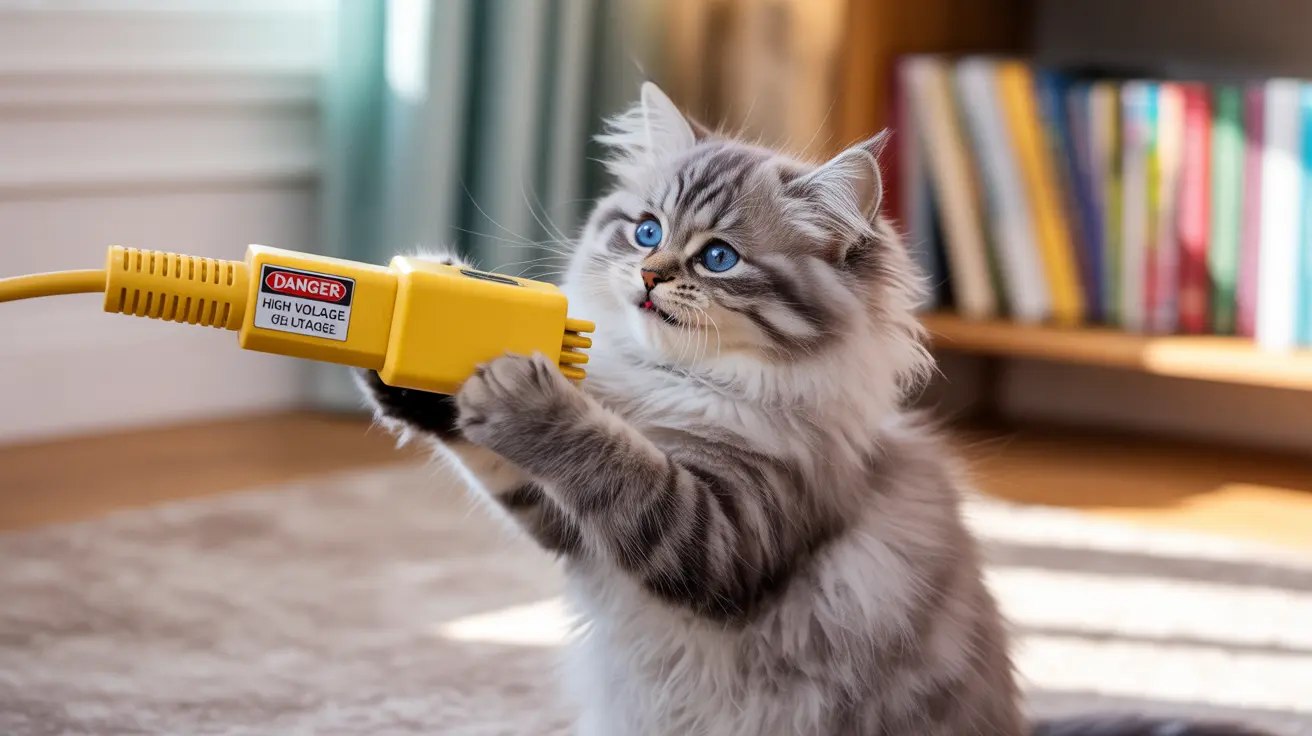If you've ever found your feline friend gnawing on power cords or USB cables, you're not alone. Many cat owners face this concerning behavior, which can be both dangerous for pets and damaging to household electronics. Understanding why cats chew on cords is the first step toward creating a safer environment for your furry companion.
This comprehensive guide will explore the reasons behind cord-chewing behavior, potential risks, and most importantly, effective solutions to protect both your cat and your home electronics.
Understanding Your Cat's Cord-Chewing Behavior
Cats are naturally curious creatures with complex behavioral patterns that can lead them to explore their environment through chewing. Several factors contribute to this potentially dangerous habit:
Natural Instincts and Exploration
Cats often view dangling cords as prey-like objects, triggering their hunting instincts. The movement and texture of electrical cords can mimic snakes or small prey animals, making them particularly enticing to your cat's predatory nature.
Developmental Stages
Kittens frequently chew on cords during their teething phase, which typically occurs between 3-6 months of age. This behavior can become habitual if not addressed early.
Health and Behavioral Triggers
Physical Health Issues
Sometimes, cord chewing may indicate underlying health concerns such as:
- Dental problems or gum disease
- Nutritional deficiencies
- Digestive issues
- Compulsive disorders like pica
Psychological Factors
Mental and emotional states that may drive cord-chewing include:
- Stress or anxiety
- Boredom
- Attention-seeking behavior
- Lack of environmental enrichment
Effective Prevention Strategies
Physical Barriers
Create a safer environment by implementing these protective measures:
- Install cord covers or flexible tubing
- Use cable management systems
- Tape down or hide cords behind furniture
- Consider wireless alternatives where possible
Deterrent Solutions
Make cords less appealing through:
- Pet-safe bitter sprays
- Citrus-scented deterrents
- Double-sided tape near cord areas
- Aluminum foil wrapping (temporary solution)
Environmental Enrichment
Provide alternative activities and items:
- Interactive toys
- Appropriate chewing alternatives
- Regular play sessions
- Climbing structures and scratching posts
Creating a Safe Environment
Take these additional steps to protect your cat:
- Regular cord inspections for damage
- Immediate replacement of frayed cords
- Supervised access to areas with numerous cords
- Implementation of cord-free zones in your home
When to Seek Professional Help
Consult your veterinarian if:
- The behavior persists despite prevention measures
- Your cat shows signs of compulsive chewing
- You notice changes in eating habits or behavior
- There are signs of dental problems or illness
Frequently Asked Questions
Why do cats chew on electrical cords instead of other household items?
Cats are attracted to cords because they resemble prey, have interesting textures, and may emit subtle vibrations or warmth. The materials used in cord insulation can also contain compounds that cats find appealing.
How can I safely prevent my cat from chewing on cords without causing stress?
Use a combination of physical barriers, deterrent sprays, and environmental enrichment. Ensure your cat has plenty of appropriate alternatives and maintain regular play sessions to prevent boredom.
What are the most effective deterrents for stopping cats from chewing on electrical cords?
Commercial bitter sprays, cord covers, and management systems are most effective. Combine these with positive reinforcement when your cat chooses appropriate toys instead of cords.
Can chewing on cords be a sign of a health issue in cats, and if so, what should I look for?
Yes, persistent cord chewing can indicate dental problems, nutritional deficiencies, or behavioral disorders like pica. Watch for excessive drooling, changes in eating habits, or compulsive behavior.
How can I redirect my cat's chewing behavior from cords to safer alternatives?
Provide appropriate chew toys, dental treats, and interactive playtime. When you catch your cat approaching cords, redirect their attention to these safer alternatives and reward positive behavior.
By understanding why cats chew on cords and implementing these prevention strategies, you can create a safer environment for your feline friend while protecting your home's electronics. Remember to be patient and consistent in your approach, as behavioral changes take time and dedication.






